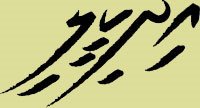A flawed constitution has been ratified by President Maumoon Abdul Gayoom on Thursday. The constitution was drafted by the People's Special Majlis over a period of four years. Even though the amended constitution will give more freedom and liberties to the Maldivian people than the previous constitution, it is a flawed constitution with several inconsistencies. Though separation of powers is a hallmark of a Presidential System, there are several flaws in the constitution that prevents a functional presidential system in Maldives and will decrease the accountability of the Executive and the Parliament. The ratified constitution does not provide room for a bicameral parliament, there will be no mid-term elections and the presidential term is for five years instead of four years. We discussed these issues in a previous blog post while other writers have expressed concern about it. We hope that the youth of Maldives will in the future work to bring a better constitution to Maldives.
In a letter to editor of Minivan News, Adam expressed concern about these deep flaws in the constitution.
In a letter to editor of Minivan News, Adam expressed concern about these deep flaws in the constitution.
The adopted draft constitution lacks some of the basic features of a presidential system of government, such as bicameral (two-branch) legislature (with upper and lower houses), mid-term elections, and shorter terms for both the legislature and the executive.
A presidential system is based on direct democracy, where people normally make the executive and the legislature directly accountable in elections.
Unlike in a parliamentary system, in a presidential system one of the main functions of the legislature is making laws, and the legislature’s role of holding the executive accountable is quite weak.
But mid-term elections for the legislature make the legislature and the executive more directly accountable to the people in a presidential system. The life of the legislature is normally half that of the executive, and elections are held apart from each other, so the people can hold these powers more accountable.
The adopted draft constitution, without a bicameral legislature and mid-term elections, creates weak checks and balances, and poor accountability.
Allowing candidates to represent an area of the country where they do not necessarily live creates weak direct representation of the people, too.
The adopted constitution, without an upper chamber and offering weak direct representation and weak accountability, leaves room for a wealthy class to dominate and marginalise the rest with impunity.


1 comment:
So good......
Post a Comment